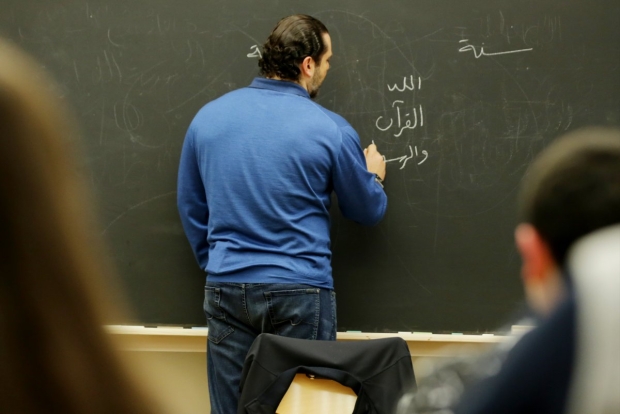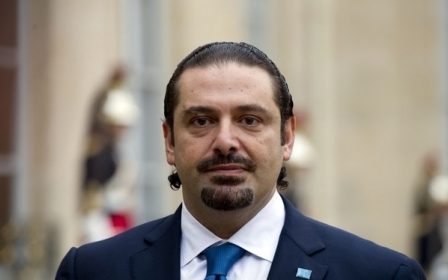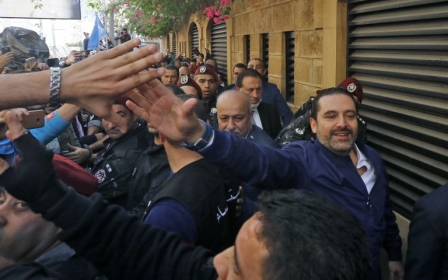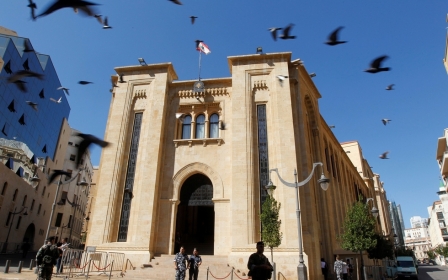Playtime over: Lebanese children tackle Hariri on politics and religion
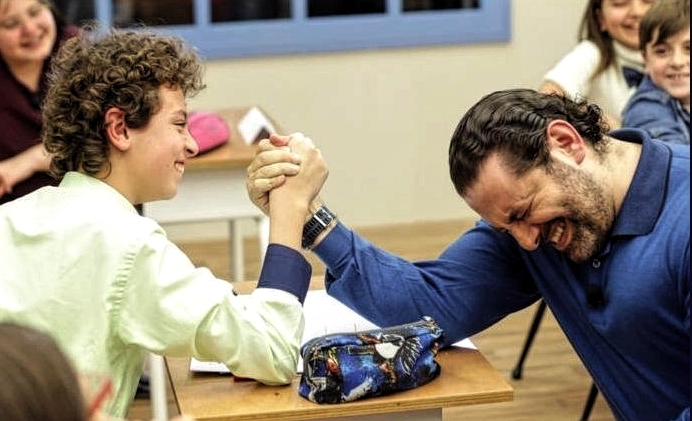
Lebanon's prime minister has had a challenging few months but on Sunday he faced an audience who wanted answers.
Hezbollah's weapons, Lebanon's religious divisions and the value of life in the Middle East were some of the big questions put to Saad Hariri by a class full of children in a TV show broadcast on Sunday.
In an episode of MTV's Dak El Jaras, Hariri entered a mock school classroom where children posed a range of questions relating to family, religion and politics.
Asked about Hezbollah’s weapons, Hariri said Hezbollah has completed its mission, referring to pushing Israel out of occupied Lebanese territories in 2000.
"We don't want to take Hezbollah's weapons... And in my opinion Hezbollah doesn't want to carry weapons," the prime minister said, adding that the government would prefer to reach an agreement and that arms eventually be handed to the military.
"Hezbollah has to be at the debate table too."
Hezbollah is fighting alongside government forces in Syria's civil war. The group has been criticised for undermining the state's authority, but it argues that its military operations are necessary to protect Lebanon from Israel and armed militants.
Translation - PM Hariri: We don’t want want to take Hezbollah’s weapons... In my opinion Hezbollah doesn’t want to carry weapons. Hezbollah has accomplished its mission. It hopes that the state can be strong, and that it will sooner or later hand in the weapons to the Lebanese military.
Religion lesson
The prime minister was also given a series of challenges to complete. In one of them he had a minute to describe the difference between Sunnis and Shia, Lebanon’s two largest Muslim sects.
Writing the words Sunni and Shia on the board, Hariri listed theological tenets he believed both had in common: "God, Quran, Prophet, and 5 Pillars."
He drew a line under the list and said: "Everything else is a political dispute. To me there is no difference between Sunnis and Shia."
Throughout his TV appearance, Hariri referred to the assassination of his father, Rafic Hariri, multiple times. Hariri's father was the former prime minister of Lebanon and was assassinated in 2005 in a massive car bomb.
Hariri also mentioned a number of other friends and associates who had been assassinated.
He said that one of the main problems in the Middle East is the "lack of respect for life".
The students asked Hariri about his own children, all of whom live outside Lebanon. Hariri revealed that they lived abroad in order to "live normal lives, without the restraint of bodyguards and security," adding that he would fear for their lives more in Lebanon.
Hariri was the centre of a diplomatic crisis last year when he announced his resignation as prime minister in a televised address from Saudi Arabia, prompting fears Lebanon would be catapulted into a political and economic tailspin.
The resignation was seen as part of the boiling tensions between the Saudi kingdom - which had long backed Hariri - and its regional rival Iran.
Celebrations swept through the country following his return in December, after accusations that Saudi Arabia had been holding him hostage sparked a political crisis.
Lebanon is set to hold its first legislative election since 2009, in May.
This article is available in French on Middle East Eye French edition.
New MEE newsletter: Jerusalem Dispatch
Sign up to get the latest insights and analysis on Israel-Palestine, alongside Turkey Unpacked and other MEE newsletters
Middle East Eye delivers independent and unrivalled coverage and analysis of the Middle East, North Africa and beyond. To learn more about republishing this content and the associated fees, please fill out this form. More about MEE can be found here.


